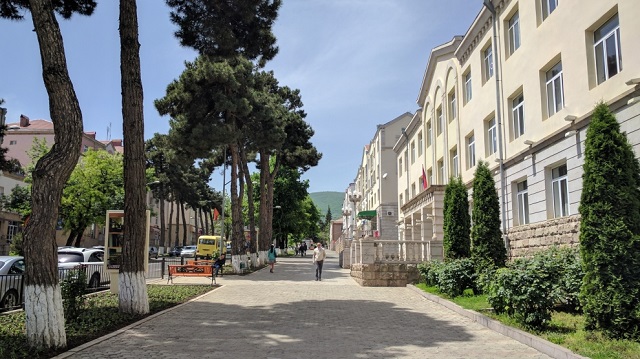Emerging Europe. Are human rights, public health issues or democracy, in general, a priority and an absolute value for the international community and the civilised world? How come that internationally recognised dictatorships are more protected than unrecognised democracies? After all, should human rights and democratic values be the basis for international architecture or not?
This issue is especially important when the world community is facing health and economic challenges caused by Covid-19. These challenges are exacerbated when it comes to preventing the spread of the epidemic among people living in yet unrecognised territories. Nagorno-Karabakh is one of the areas where 150,000 people are deprived of access to assistance due to the unresolved conflict and Azerbaijan’s blockade policy. The first case of Covid-19 was diagnosed in Nagorno-Karabakh on April 7, and as of May 28, according to NK’s ministry of health, 38 cases have been registered there.
The Nagorno-Karabakh section of the International Crisis Group’s report The Covid-19 Challenge in Post-Soviet Breakaway Statelets reads that the International Committee of the Red Cross is the only international body that can provide assistance to people living in Nagorno-Karabakh. However, even this assistance is very limited.
The problems that have arisen as a result of the epidemic have once again shown that there is no clear set of tools to work with people living in the unrecognised areas or so-called “grey zones”, especially for issues related to human rights. But it is clear that these areas are inhabited by people who are entitled to the same rights as those living in recognised states. Human rights are universal and status neutral.
Read also
The pandemic is by far not the only challenge that people of Nagorno-Karabakh have been facing for decades of protracted conflict. The Nagorno-Karabakh issue has always been about human rights. In 1999 the European Parliament adopted a resolution on support for the peace process in the Caucasus wherein it maintained that “strengthening democracy and human rights are prerequisite for the peaceful resolution to the conflict in Nagorno-Karabakh.”
Unfortunately, this position did not remain consistent and the human rights perspective got somewhat lost in the EU’s stance on the Nagorno-Karabakh conflict. The EU reaction to the last general elections in Nagorno-Karabakh is a case in point. The relevant EU statement argued that the EU does not recognise the constitutional and legal framework within which the elections were held, and was missing any reference to human rights as if they should have not existed in conflict areas.
For more than two decades, the people of Nagorno-Karabakh have been freely pursuing their economic, social and cultural development, forming authorities through competitive and democratic elections. They have succeeded in ensuring human rights and freedom of speech without any international assistance and under constant military threat from Azerbaijan. These people absolutely realise that security and democracy are interconnected and that democratic states are best positioned to achieve peaceful settlement of their issues.
Nowadays the EU, embodying democratic values, is allocating huge resources, including finance, to democratic reforms around the world. But to what extent are these resources accessible to people living in conflict zones? How accessible is this assistance to those who exercise their human rights in Nagorno-Karabakh? Should democracies be ignored only because of their status or putative political correctness?
Although there is no exact figure, the approximate number of people living in unrecognised areas all over the world reaches up to 100 million. In many of these areas, the restrictions on fact-finding activities is a major obstacle for international organisations to gather accurate information about the number of people living there and at least their vital needs. Such a policy should indeed be reconsidered.
Indeed, the situation with Covid-19 once again proves that the international community needs to develop new and flexible tools in order to work in still unrecognised areas to protect public health, as well as support institutional capacity building. The international community should contemplate the adaptation and localisation of existing mechanisms for democracy regardless of status. At the same time, the international isolation of people living in these areas cannot be acceptable and they should be provided with platforms in international institutions to be able to be at least be heard, so that solutions to their problems become feasible.
The choice lies between protecting and promoting all human rights, regardless of the status of territories, or providing legitimacy to dictatorial regimes that enforce medieval sieges on human rights and democracy. Covid-19 brings an additional reason to reflect on the universality of human rights and to reconsider our position towards people living in unrecognised territories. I strongly believe that the post-pandemic world has no choice other than to become a more inclusive place for everyone.
Photo: Baykar Sepoyan
—
Unlike many news and information platforms, Emerging Europe is free to read, and always will be. There is no paywall here. We are independent, not affiliated with nor representing any political party or business organisation. We want the very best for emerging Europe, nothing more, nothing less. Your support will help us continue to spread the word about this amazing region.
You can contribute here.























































